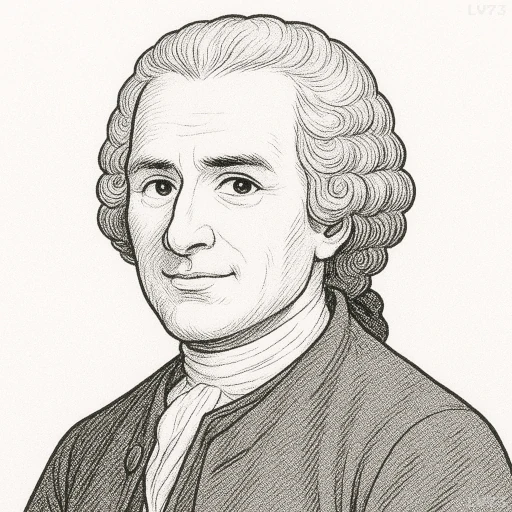“Happiness: a good bank account, a good cook, and a good digestion.”

- June 28, 1712 – July 2, 1778
- Born in Geneva
- Philosopher, political philosopher, writer, composer
table of contents
Quote
“Happiness: a good bank account, a good cook, and a good digestion.”
Explanation
In this lighthearted quote, Jean-Jacques Rousseau presents a humorous yet practical definition of happiness, reducing it to three simple elements: financial security, good food, and good health. Rousseau’s perspective reflects a pragmatic approach to human well-being, where the material needs of life—such as having enough money, enjoying good meals, and maintaining physical health—are foundational to a person’s sense of contentment. While Rousseau is often associated with more philosophical and abstract ideas about the nature of human society, this quote provides a more earthy and down-to-earth understanding of happiness, rooted in the basics of daily life.
Historically, Rousseau’s view on happiness contrasts with the philosophical idealism that was prevalent during his time. While the Enlightenment era often focused on more lofty ideals, such as progress, reason, and the pursuit of knowledge, Rousseau here taps into the simple, immediate pleasures of life. This quote can be seen as an acknowledgment that happiness does not always arise from grand intellectual or moral pursuits, but often from meeting the fundamental needs of comfort, nourishment, and health. It aligns with his critique of society, where many people are burdened by the complexities of ambition and societal expectations, forgetting that basic pleasures can contribute significantly to well-being.
In modern times, this quote remains relevant in discussions about well-being and life satisfaction. The importance of financial stability, good nutrition, and health is as true today as it was in Rousseau’s time. With the pressures of modern life—such as work stress, economic instability, and the complexities of modern diets—this simple recipe for happiness reminds us to appreciate and prioritize the basics. It suggests that true happiness may not necessarily come from fame or success but from the ability to enjoy the simpler, everyday aspects of life.
Would you like to share your impressions or related stories about this quote in the comments section?


